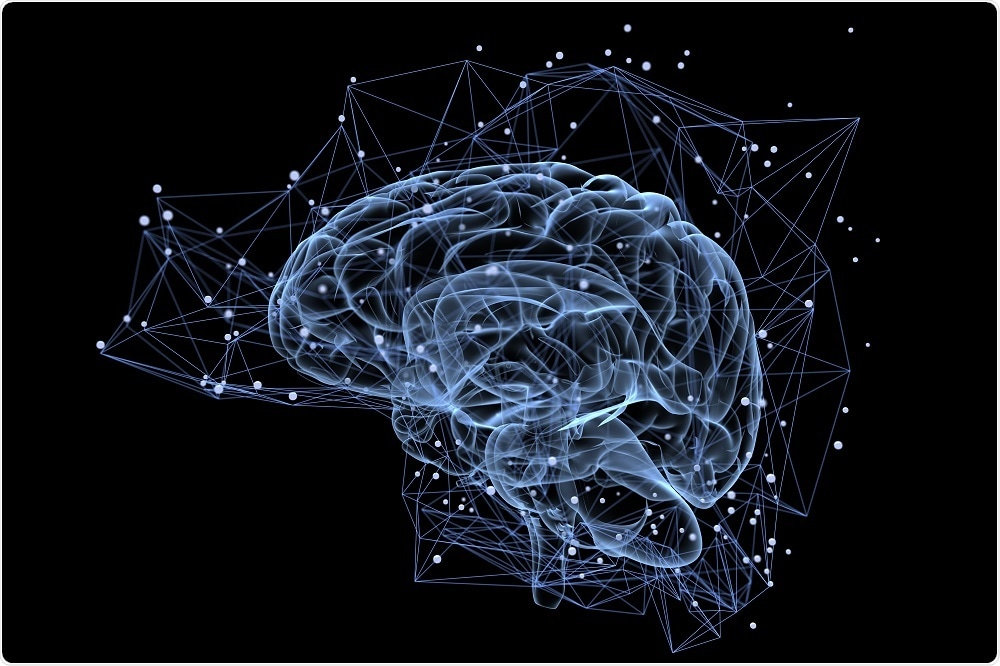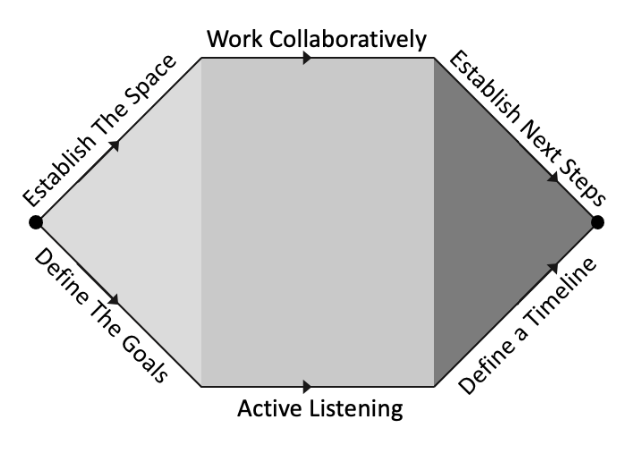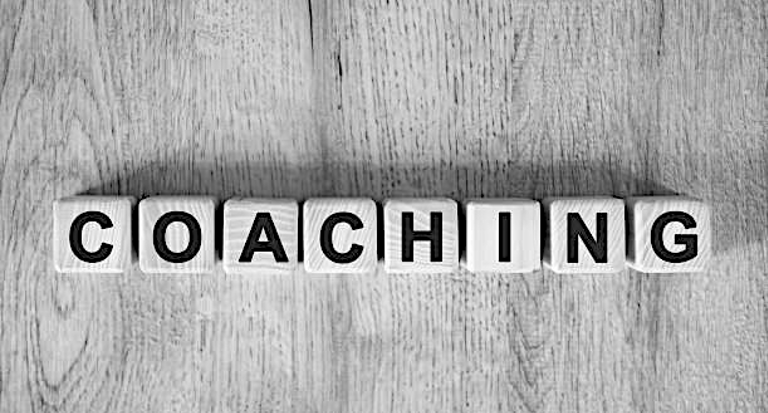Have you ever stopped to consider how your beliefs and mental models shape your leadership style?
Coach
Well, I guess I haven’t really thought about it much. I just do what I’ve always done.
Leader
What if I told you that by actively reshaping these models, you could become a more impactful leader?
Coach
I suppose that sounds promising, but is it really possible? I’m not sure how much difference it would make.
Leader
Consider this; how might this transformation influence your team’s success?
Coach
That’s an interesting point. I suppose if I could improve my leadership skills, it could positively impact my team’s performance.
Leader
Exactly. Now, let’s address some common concerns. Have you ever felt uncertain about the effectiveness of coaching?
Coach
Yes, definitely. I wonder if it’s worth the time and investment.
Leader
Understandable. However, think about the potential return on investment. How much more productive and profitable could your team be if you were a more effective leader?
Coach
Well, I hadn’t really thought about it that way before. I guess if coaching helps me improve, it could have a significant impact on our success.
Leader
Absolutely. Now, you might be thinking that you don’t have the time for coaching in your busy workday. But consider this: Investing in yourself and your leadership skills is an investment in your team and your organisation’s future success. Can you afford not to prioritise your own development?
Coach
I see your point. I suppose I could make the time if it means I’ll see tangible results.
Leader
Precisely. Remember, coaching is about more than just improving your skills; it’s about unlocking your full potential and driving meaningful change. Are you ready to take that first step towards becoming the leader you aspire to be?
Coach
Yes, I am. Let’s do this.
Leader
At LAMDA Solutions, we delve into cognitive psychology to guide you on a journey of self-discovery and growth. By understanding how your brain processes information and forms habits, we empower you to challenge existing mental models and cultivate new ones aligned with your leadership aspirations.
Through experiential learning, feedback, and reflection, you’ll hone your skills, deepen your self-awareness, and adapt to the evolving demands of leadership.
Join us as we embark on this transformative journey together, unlocking your full potential and driving meaningful change in your leadership practice.
Our Approach
The approach used by LAMDA Solutions is based on research within cognitive psychology, which provides valuable insights into how humans process information, make decisions, and form habits. The aim is to leverage these insights to develop leadership skills and alter embedded habits.
One important aspect of cognitive psychology that supports the LAMDA Solutions approach is the idea that our brain forms mental models or schemata to help us navigate the world. Mental models are representations of the world that help us interpret information, make decisions, and the actions we subsequently take. These models are created through repeated experiences and feedback.
However, mental models can also become rigid and inflexible over time, especially when we rely on them too heavily. This is where the LAMDA Solutions approach comes in, as it seeks to help individuals identify and challenge their existing mental models and develop new ones that are more effective in their leadership role.

Another key insight from cognitive psychology is that the brain is wired to learn through experience and feedback. This means that the LAMDA Solutions approach focuses on experiential learning, where individuals have the opportunity to practice new skills, reflect upon these and receive feedback in a safe and supportive environment.
The approach also emphasises the importance of reflection, as research has shown that reflecting on experiences can deepen learning and help individuals identify areas for improvement. By incorporating regular reflection exercises into the process and supplementing this with regular coaching, LAMDA Solutions aims to help individuals develop their self-awareness and refine their leadership skills over time.
Overall, the LAMDA Solutions approach draws on the research within cognitive psychology to provide a structured and effective way for individuals to develop their leadership skills and alter embedded habits. By incorporating experiential learning, feedback, and reflection, the approach helps individuals develop more effective mental models that are better suited to the demands of leadership in today’s complex and rapidly changing business environment.
Cognitive-Behavioural Coaching
At LAMDA Solutions we have embraced the approach of cognitive-behavioural coaching (CBC), this is an evidence-based approach to coaching that combines principles from cognitive-behavioural therapy (CBT) with the practice of coaching. This approach aims to help individuals change unhelpful patterns of thinking and behaviour, and to develop more effective strategies for achieving their goals. In the context of leadership coaching, we believe that CBC can help leaders identify and overcome barriers to success, such as negative self-talk, limiting beliefs, and unproductive behaviours.
CBC typically involves a structured, collaborative process between the coach and client.

During the coaching journey together, the coach will help leaders identify specific goals and objectives, and then working together we will develop strategies for achieving these goals. The coach will also help the leader to identify and challenge any unhelpful patterns of thinking and behaviour which may arise in order to develop more positive and adaptive ways of thinking and acting.
Our particular approach to CBC utilises several key coaching techniques. The first is the ACT (Acceptance and Commitment Therapy) model, which emphasises mindfulness, acceptance and behaviour change. This particular approach helps you to identify and change unhelpful thoughts and behaviours in order to move towards more valued and meaningful goals. This process consists of the following six core processes.
- Acceptance: Acknowledging and accepting difficult thoughts and feelings without trying to change or avoid them.
- Cognitive Diffusion: Learning to see thoughts as just thoughts rather than as facts or truths.
- Being Present: Bringing full awareness to the present moment, rather than getting caught up in thoughts about the past or future.
- Self-as-Context: Developing a sense of self that is separate from thoughts, emotions, and experiences.
- Values: Clarifying what is truly important and meaningful in life.
- Committed Action: Taking steps towards valued goals, even when it is difficult or uncomfortable.
Within the leadership coaching journey, we look to help the leader identify and work through the different processes to help them achieve their goals. For example, we might help them become more aware of their thoughts and feelings, encouraging them to learn to accept them without judgment. We will then help them clarify their values and set goals that are aligned with these. Finally, we will help them to take committed action towards their goals, overcoming any obstacles or setbacks.

Some of the key tools which we use within this ACT approach to our leadership coaching journeys are:
- Goal-setting: Helping to identify specific, measurable, achievable, relevant, and time- bound (SMART) goals that are aligned with individual values and aspirations.
- Self-monitoring: Encouraging a leader to keep track of their thoughts, emotions, and behaviours in order to gain greater insight into their patterns of thinking and behaviour.
- Cognitive restructuring: Helping to identify and challenge any unhelpful thoughts and beliefs, and to develop more realistic, positive, and adaptive ways of thinking.
- Behavioural experiments: Encouraging a leader to try out new behaviours and strategies in a safe and supportive environment, in order to test the validity of their assumptions and beliefs.
- Action planning: Working with a leader to develop concrete action plans that will help them achieve their goals, and to identify and overcome obstacles that may arise.
Overall, the ACT model is a useful approach which we use to overcome unhelpful thoughts and behaviours and move towards a more fulfilling and meaningful leadership practice.
One of the other primary approaches we look to use, is the PAC model, also known as the Parent- Adult-Child model. This is a psychological framework developed by Eric Berne which can be applied in leadership coaching to help individuals understand and manage their behaviour, emotions, and interactions with others.
Overall, the PAC model provides us with a valuable framework which we use to aid leaders in examining and managing their behaviours, emotions, and relationships in the context of leadership. It supports personal growth, self-awareness, and the development of effective leadership skills. Here is a summary of the three ego states within the PAC model:
- Parent Ego State: The Parent ego state represents learned behaviours, attitudes, and values that individuals adopt from authority figures or role models in their lives. In our leadership coaching, the Parent ego state will be explored to identify both positive and negative patterns of behaviour which an individual may exhibit as a leader. We will aim to help leaders recognise when they are operating from their Parent ego state and assist them in examining the impact of these behaviours on their leadership effectiveness and the relationship they have with others.
- Adult Ego State: The Adult ego state represents the rational and logical part of an individual. It involves objective thinking, problem-solving, and decision-making based on available information and analysis. In our leadership coaching, we emphasise the Adult ego state to help leaders make informed choices, evaluate situations objectively, and consider various perspectives. We will support leaders in developing their Adult ego state by encouraging critical thinking, promoting self-reflection, and enhancing decision-making skills.
- Child Ego State: The Child ego state represents spontaneous emotions, creativity, and learned behaviours from childhood experiences. In our leadership coaching, we will explore the Child ego state to help leaders understand how their past experiences and emotions influence their leadership style and interactions with others. We will assist leaders in recognising when they are operating from their Child ego state, help them to manage emotional reactions, tap into their creativity, and find healthy ways to express themselves.
By approaching our coaching through the use of the PAC model, we will be able to help leaders within the following areas:
- Gain self-awareness: The PAC model provides a framework for leaders to understand their default behavioural patterns and tendencies. We look to use it to help leaders to identify which ego state they typically operate from and become aware of the impact this may have on their leadership style and the relationships they hold with others.
- Improve communication: The PAC model can also be used to help recognise and understand the ego states of others, which a leader can then use to enhance the quality of their interactions with others and ultimately foster collaboration. We look to use this to help leaders develop effective communication skills by encouraging them to interact from their Adult ego state, listen actively, and respond appropriately to the ego states of their team members.
- Manage relationships: The PAC model will also be used to facilitate a leader in understanding of how their own ego state influences their interactions with others. We can use this to guide leaders in building healthy relationships by encouraging them to engage with others from their Adult ego state, showing empathy, and adapting their communication style to meet the needs of different individuals.
- Enhance leadership effectiveness: By integrating the PAC model into our leadership coaching, we are able to help leaders to develop a more balanced and flexible approach to their leadership role. They can learn to access the strengths of each ego state and use them appropriately in different situations, leading to increased effectiveness and better decision-making.

